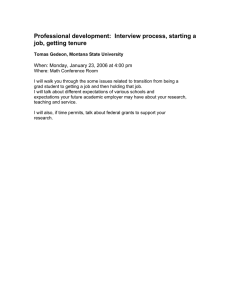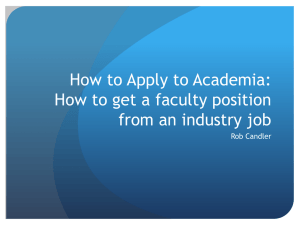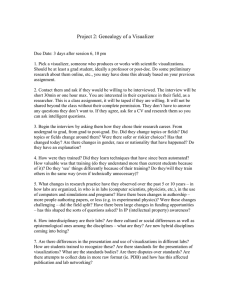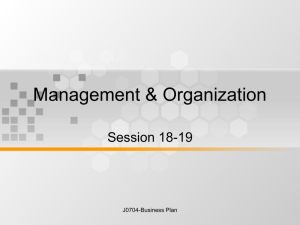Now What, Grad? Your Path to Success After College
advertisement
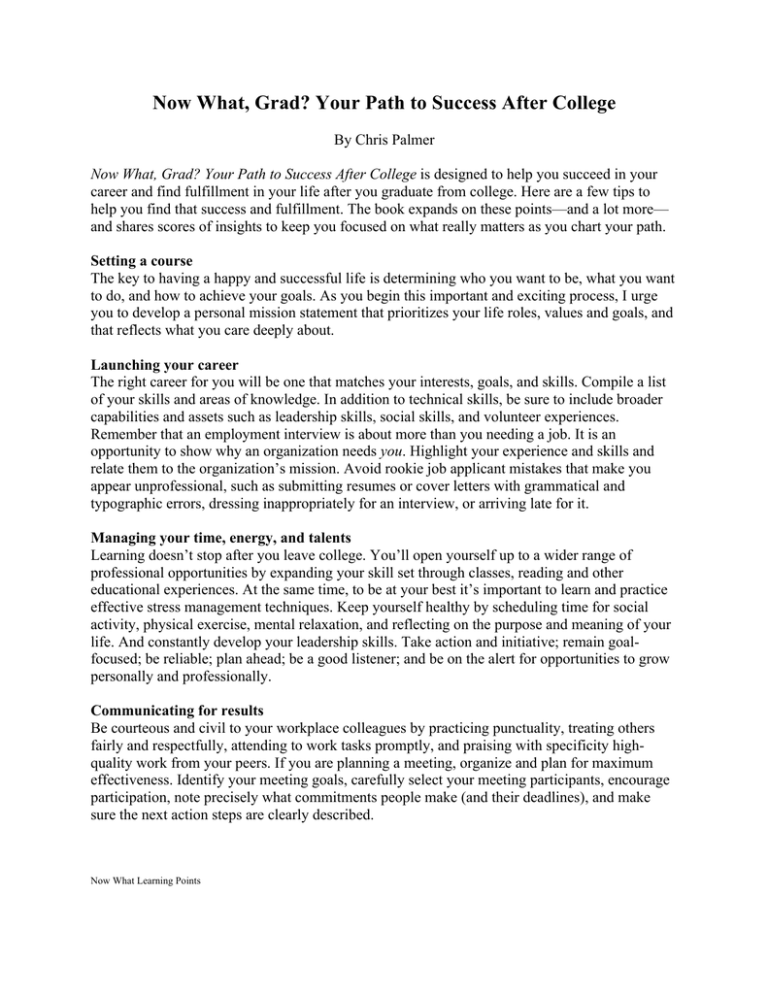
Now What, Grad? Your Path to Success After College By Chris Palmer Now What, Grad? Your Path to Success After College is designed to help you succeed in your career and find fulfillment in your life after you graduate from college. Here are a few tips to help you find that success and fulfillment. The book expands on these points—and a lot more— and shares scores of insights to keep you focused on what really matters as you chart your path. Setting a course The key to having a happy and successful life is determining who you want to be, what you want to do, and how to achieve your goals. As you begin this important and exciting process, I urge you to develop a personal mission statement that prioritizes your life roles, values and goals, and that reflects what you care deeply about. Launching your career The right career for you will be one that matches your interests, goals, and skills. Compile a list of your skills and areas of knowledge. In addition to technical skills, be sure to include broader capabilities and assets such as leadership skills, social skills, and volunteer experiences. Remember that an employment interview is about more than you needing a job. It is an opportunity to show why an organization needs you. Highlight your experience and skills and relate them to the organization’s mission. Avoid rookie job applicant mistakes that make you appear unprofessional, such as submitting resumes or cover letters with grammatical and typographic errors, dressing inappropriately for an interview, or arriving late for it. Managing your time, energy, and talents Learning doesn’t stop after you leave college. You’ll open yourself up to a wider range of professional opportunities by expanding your skill set through classes, reading and other educational experiences. At the same time, to be at your best it’s important to learn and practice effective stress management techniques. Keep yourself healthy by scheduling time for social activity, physical exercise, mental relaxation, and reflecting on the purpose and meaning of your life. And constantly develop your leadership skills. Take action and initiative; remain goalfocused; be reliable; plan ahead; be a good listener; and be on the alert for opportunities to grow personally and professionally. Communicating for results Be courteous and civil to your workplace colleagues by practicing punctuality, treating others fairly and respectfully, attending to work tasks promptly, and praising with specificity highquality work from your peers. If you are planning a meeting, organize and plan for maximum effectiveness. Identify your meeting goals, carefully select your meeting participants, encourage participation, note precisely what commitments people make (and their deadlines), and make sure the next action steps are clearly described. Now What Learning Points

